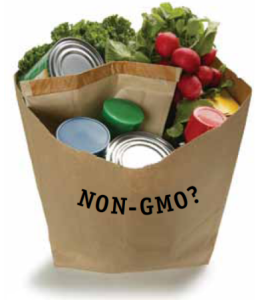GMOs: What are those?
Lately, the media has been talking a lot about GMOS, or genetically modified organisms. But what are they exactly? How do they affect people? What foods are impacted? Austin Veggie Chef is here to answer some of the questions you may have!
Genetically Modified Organisms, often shortened to GMOs, are living things whose genes have been altered so that they can be more effectively produced. For example, many plants and vegetables have had their genes changed to be able to resist bugs or pesticides, while some species of fish have had their genes altered so that they can be farmed.

There are some crops that have almost all been genetically modified. 93% of the soy crops in the United States and 90% of corn crops are comprised of genetically modified specimens. Canola seeds, cotton, sugar beets, greens like tatsoi, chard, and mizuna, flax, wheat, and rice also have large percentages of genetically modified plantations. These crops are called high risk, meaning there is a big chance that the ingredient you are eating from that list has been genetically altered.
Another important thing to note about these high-risk plants is that because they are often used as ingredients in various other foods, it can cause other foods to be affected. Examples of this are molasses, amino acids, many flavorings, xanthan gum, which are all made from ingredients that are often genetically modified. It can also affect animals and thus animal products, as many of them eat feed that contains these genetically modified ingredients.
So why does this matter? How are they harmful? Well, the answer is pretty complicated, and lots of experts out there have a several on how bad they are and how exactly they can affect you. But in a nutshell, anything that involves tampering with genetics can have negative consequences. Even with science as far advanced as it is, genes are unpredictable.
Look at humans, for example. We can look at a family’s genetic make up and maybe get an idea of what our children may look like, but it is impossible to predict exactly how genes will end up expressed in our offspring. The same goes for plants and animals.
The same goes for other animals and plants. Scientists alter the genes in hopes of creating a better plant or animal, but genes can mutate and turn them toxic and cause food allergies. Most of this genetic work is not regulated, which makes it difficult for food sellers to know if what they are getting has been genetically modified, and, if it was, whether that genetic modification was completed successfully and will not be harmful.

However, as the issue of GMOs gains national attention, more is being done to educate consumers about them and how to take preventative measures against eating genetically modified ingredients. Many wholesale and retail food sources are now labeling foods known to not have GMO ingredients, and are making a conscious to not include them in their food. Whole Foods Market is one great example of this, even going so far to let people know in their stores that the rotisserie chicken they about to eat was made with canola oil that does not contain GMO canola seed.
It is very difficult to avoid eating GMO foods, since they are so prevalent in many staple crops and ingredients here in the United States. But the best way to do so is to educate yourself. For more information, check out the Non-GMO Project website. They have a listing of products, restaurants, and markets that are devoted to using as many non-GMO products as possible. When shopping, look on the label for their Non-GMO certified products. If in doubt, try to avoid the high-risk crops mentioned above.
As we learn more and more about GMOs, the food community is heeding the advice of scientists and trying to weed out GMOs from the country’s food sources. Soon enough, the United States will be free of GMOs, saving the health of its people and its land, much because of the fantastic work the Non-GMO Project has done.
Source: The Non-GMO Project


